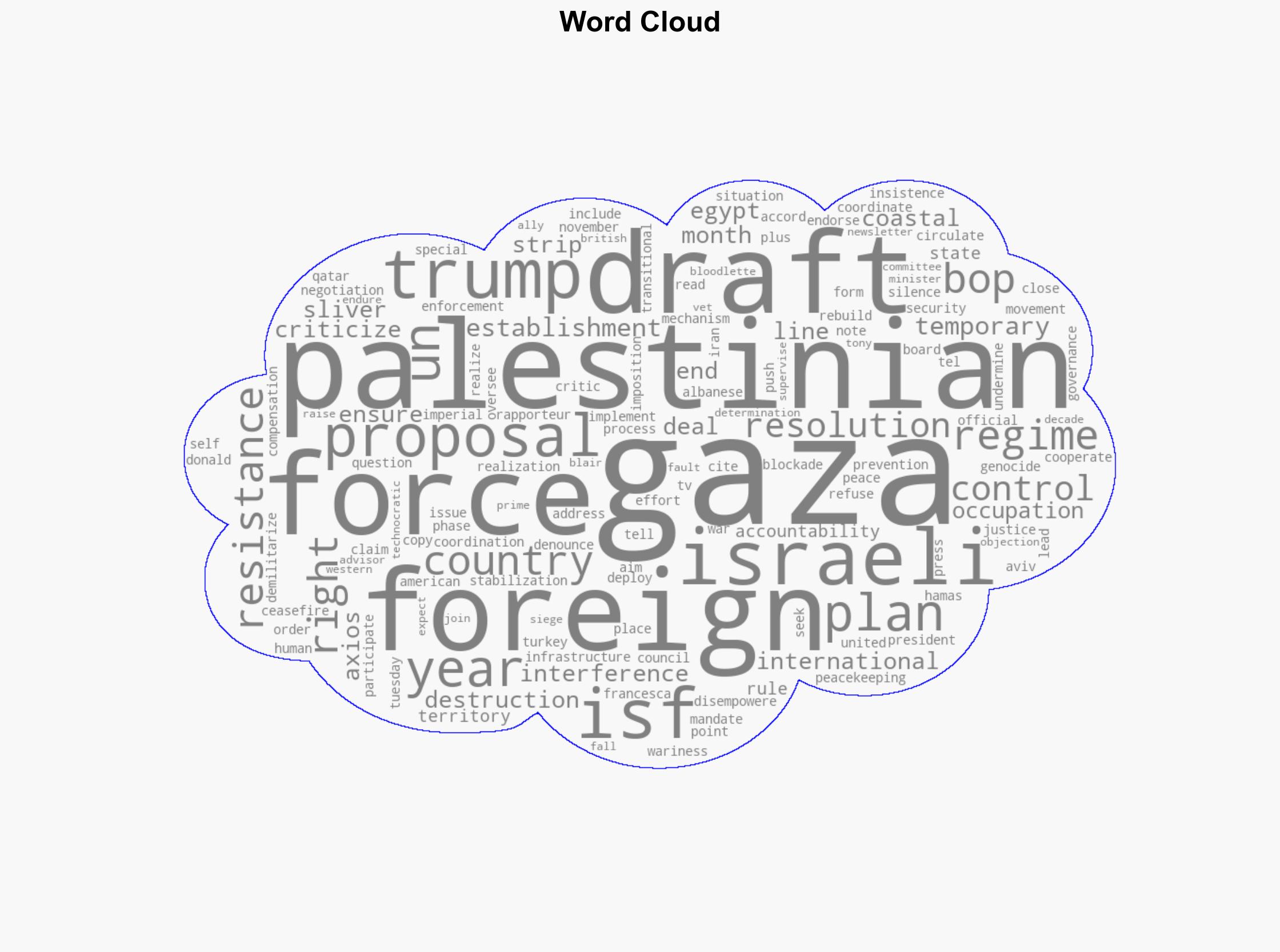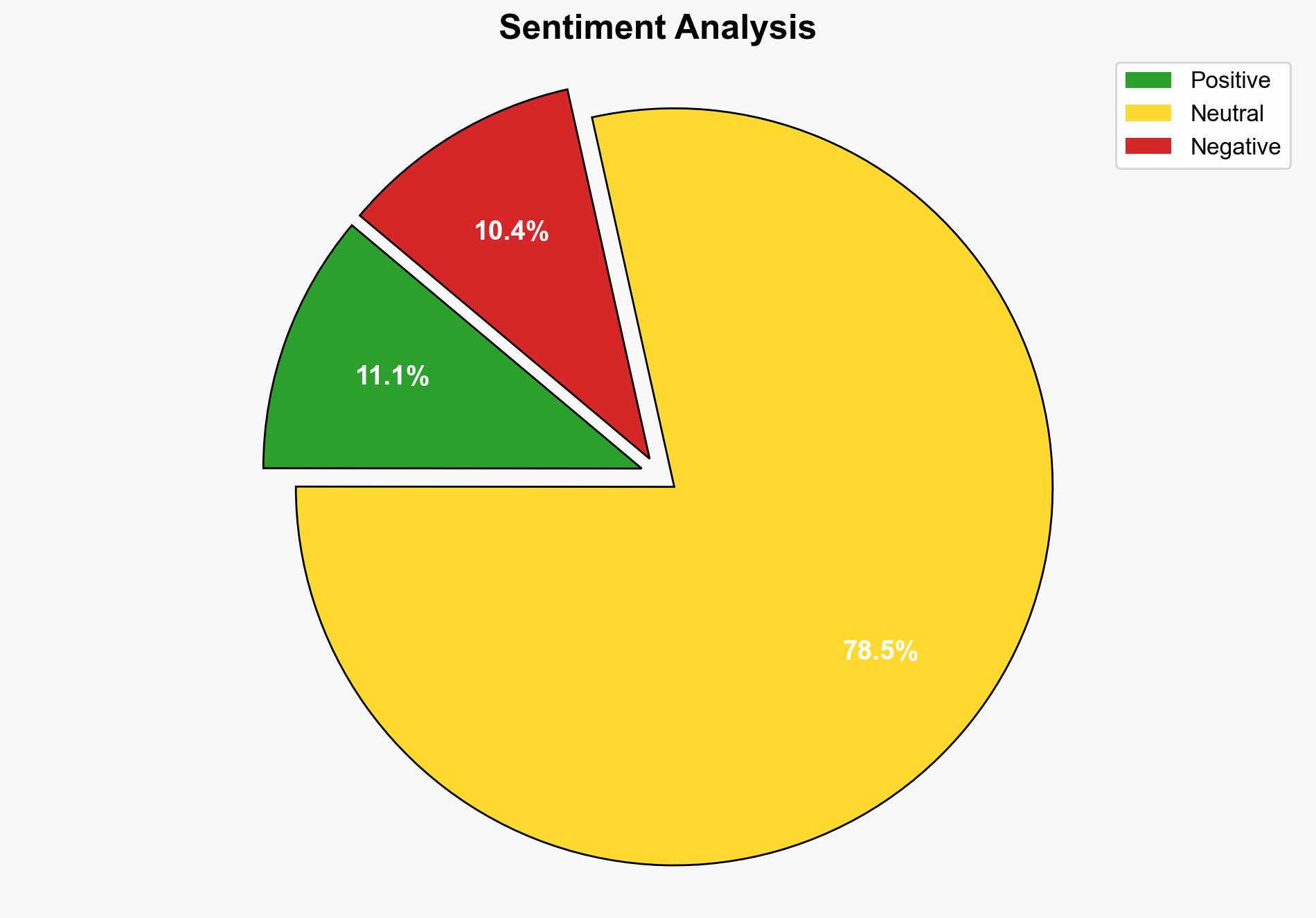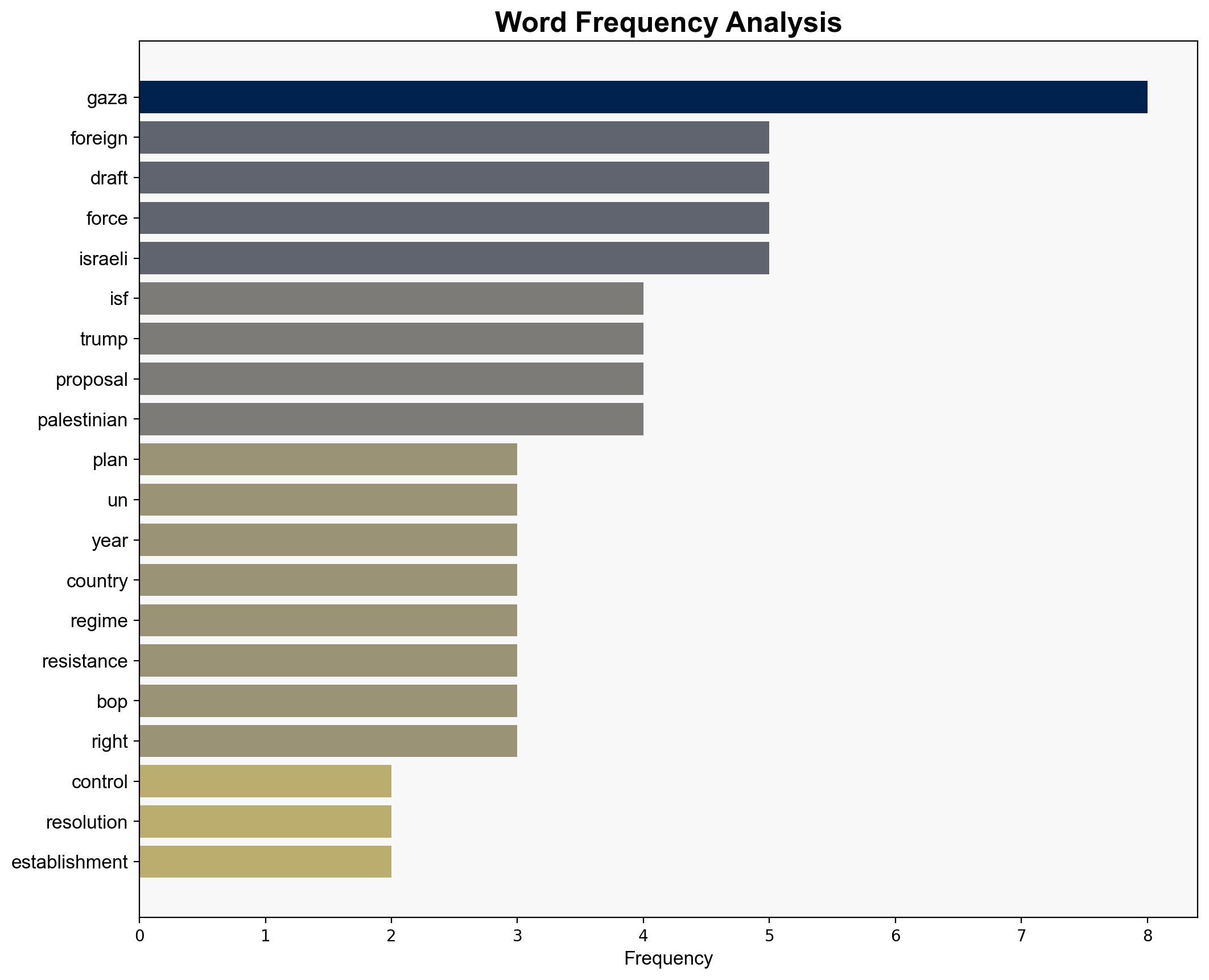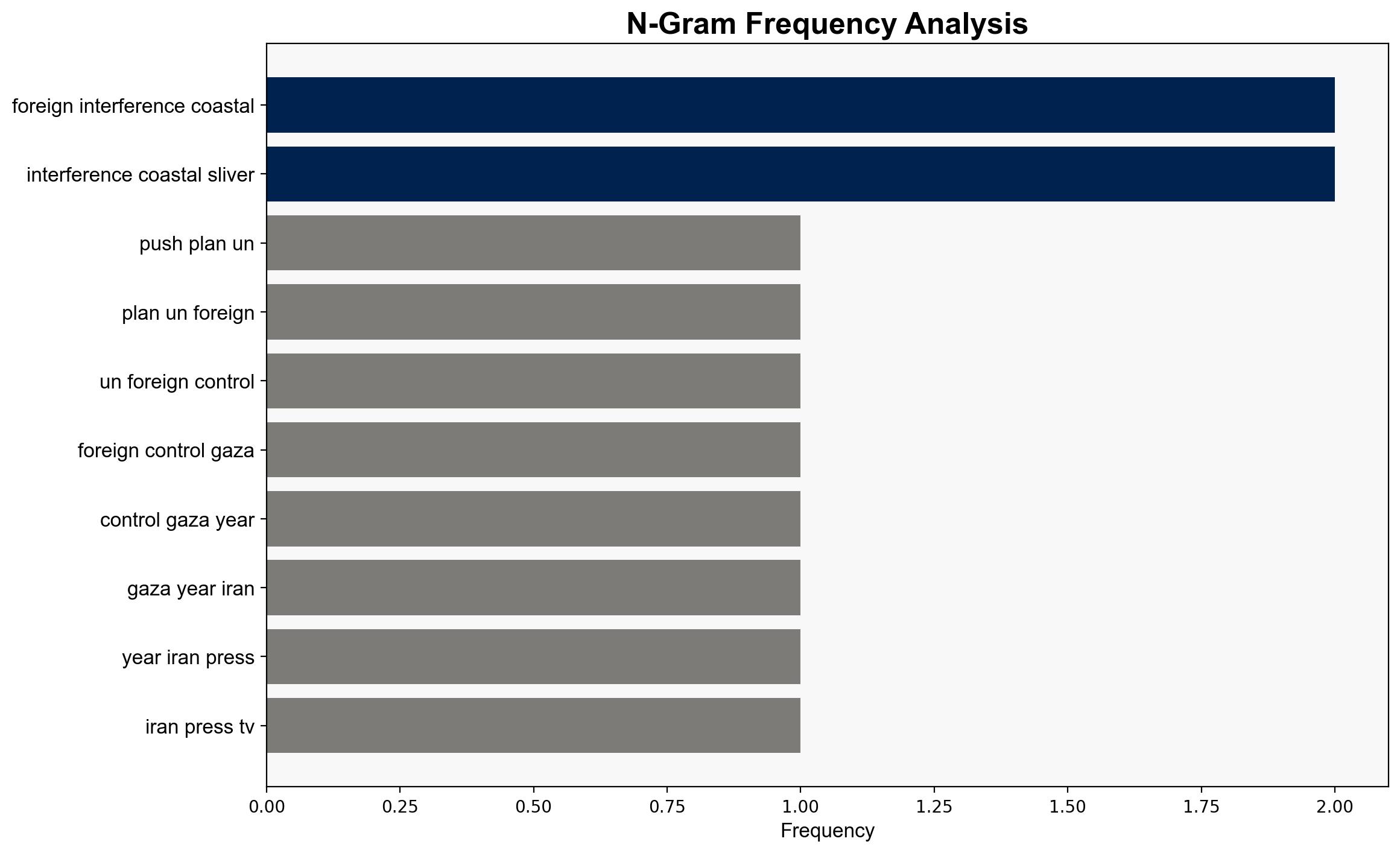US pushes plan at UN for foreign control of Gaza for at least two years – Globalsecurity.org
Published on: 2025-11-05
Intelligence Report: US pushes plan at UN for foreign control of Gaza for at least two years – Globalsecurity.org
1. BLUF (Bottom Line Up Front)
The most supported hypothesis suggests that the US plan for foreign control of Gaza aims to stabilize the region by reducing Hamas’s military capabilities and fostering a ceasefire. Confidence in this hypothesis is moderate due to regional complexities and historical resistance to foreign intervention. Recommended action includes diplomatic engagement with regional stakeholders and monitoring for shifts in local sentiment.
2. Competing Hypotheses
Hypothesis 1: The US plan is primarily a strategic move to stabilize Gaza by reducing Hamas’s influence and ensuring a ceasefire through international oversight. This involves deploying an International Stabilization Force (ISF) with the cooperation of Turkey, Qatar, and Egypt.
Hypothesis 2: The plan is a geopolitical maneuver to extend US influence in the region, using the guise of stabilization to control Gaza’s governance and resources, potentially undermining Palestinian self-determination.
Using ACH 2.0, Hypothesis 1 is better supported by the draft’s focus on ceasefire and demilitarization, while Hypothesis 2 is less supported due to the lack of explicit resource control measures in the draft.
3. Key Assumptions and Red Flags
Assumptions:
– The ISF can effectively demilitarize Gaza and maintain peace.
– Regional actors (Turkey, Qatar, Egypt) will cooperate without pursuing their own agendas.
Red Flags:
– Historical resistance to foreign intervention in Gaza.
– Potential bias in the draft’s portrayal of the ISF as purely peacekeeping.
– Lack of clarity on accountability and compensation for Palestinians.
4. Implications and Strategic Risks
The plan could lead to reduced hostilities if successful, but risks include exacerbating tensions if perceived as foreign occupation. Economic impacts could arise from disrupted trade routes or sanctions. Geopolitically, failure to address Palestinian rights could fuel regional instability and anti-Western sentiment.
5. Recommendations and Outlook
- Engage diplomatically with regional powers to ensure alignment and mitigate unilateral actions.
- Monitor local and international reactions to adjust strategies proactively.
- Scenario Projections:
- Best Case: Successful stabilization and peace agreement.
- Worst Case: Escalation of violence and regional conflict.
- Most Likely: Prolonged negotiations with intermittent conflict.
6. Key Individuals and Entities
– Donald Trump
– Francesca Albanese
– Tony Blair
7. Thematic Tags
national security threats, cybersecurity, counter-terrorism, regional focus





